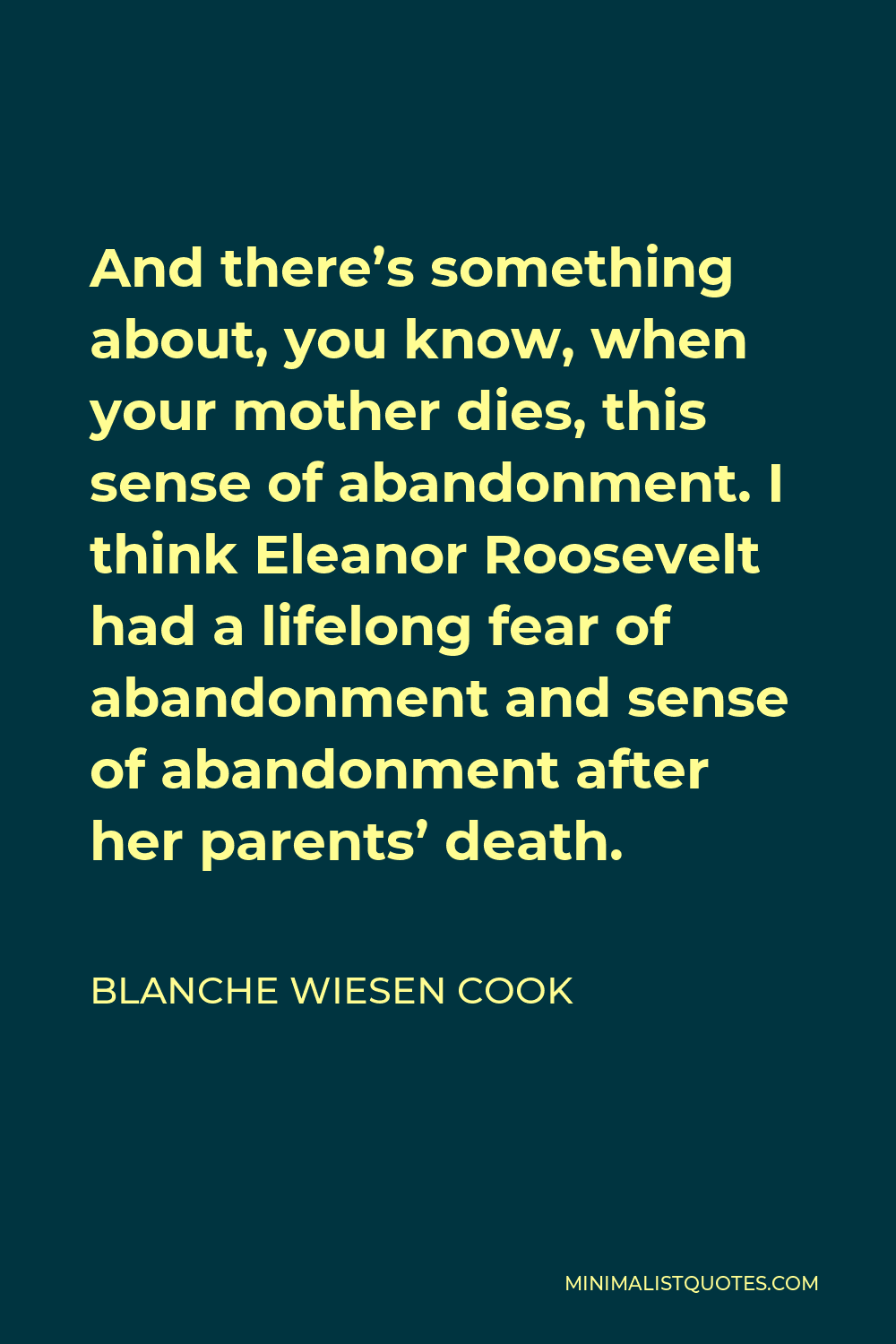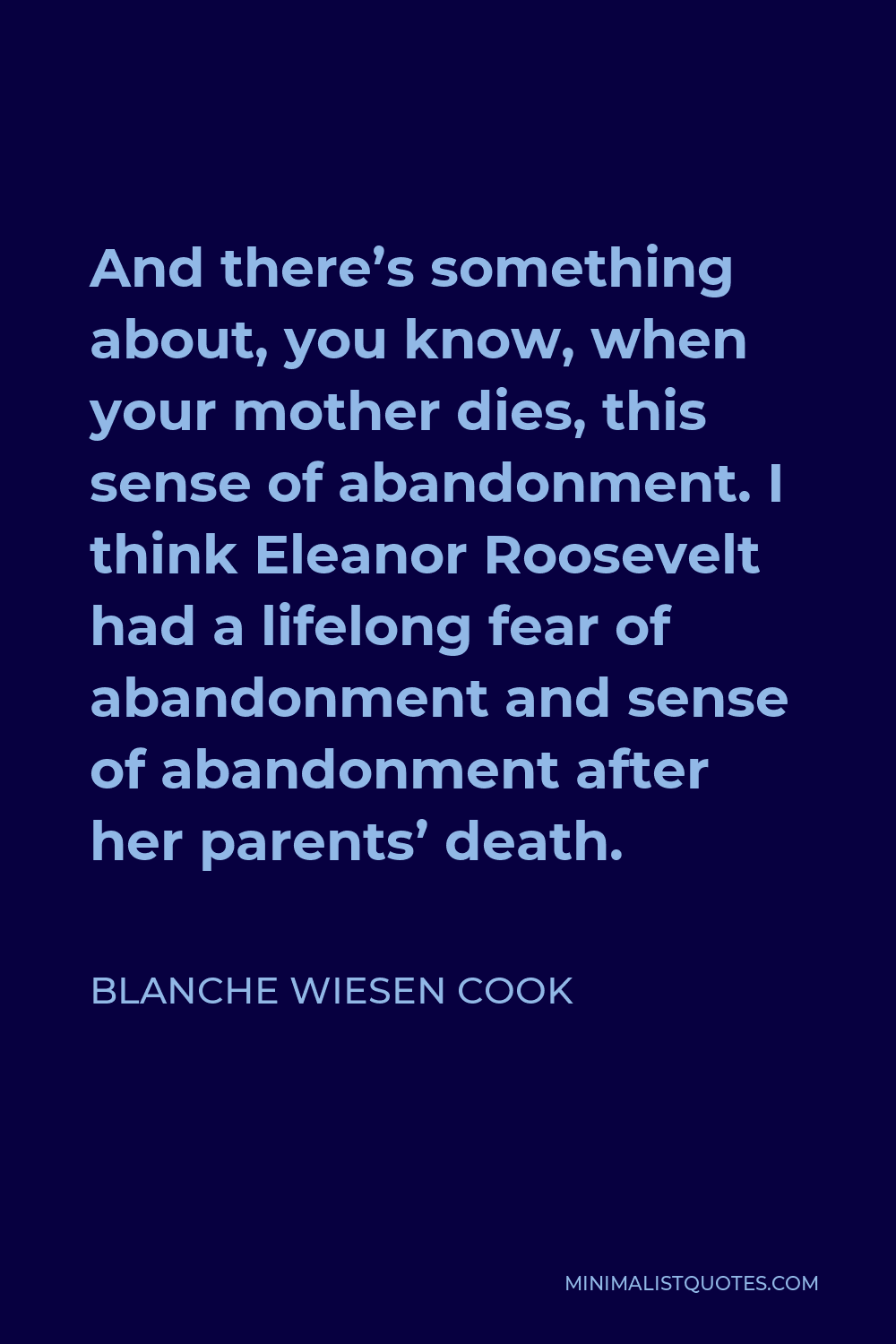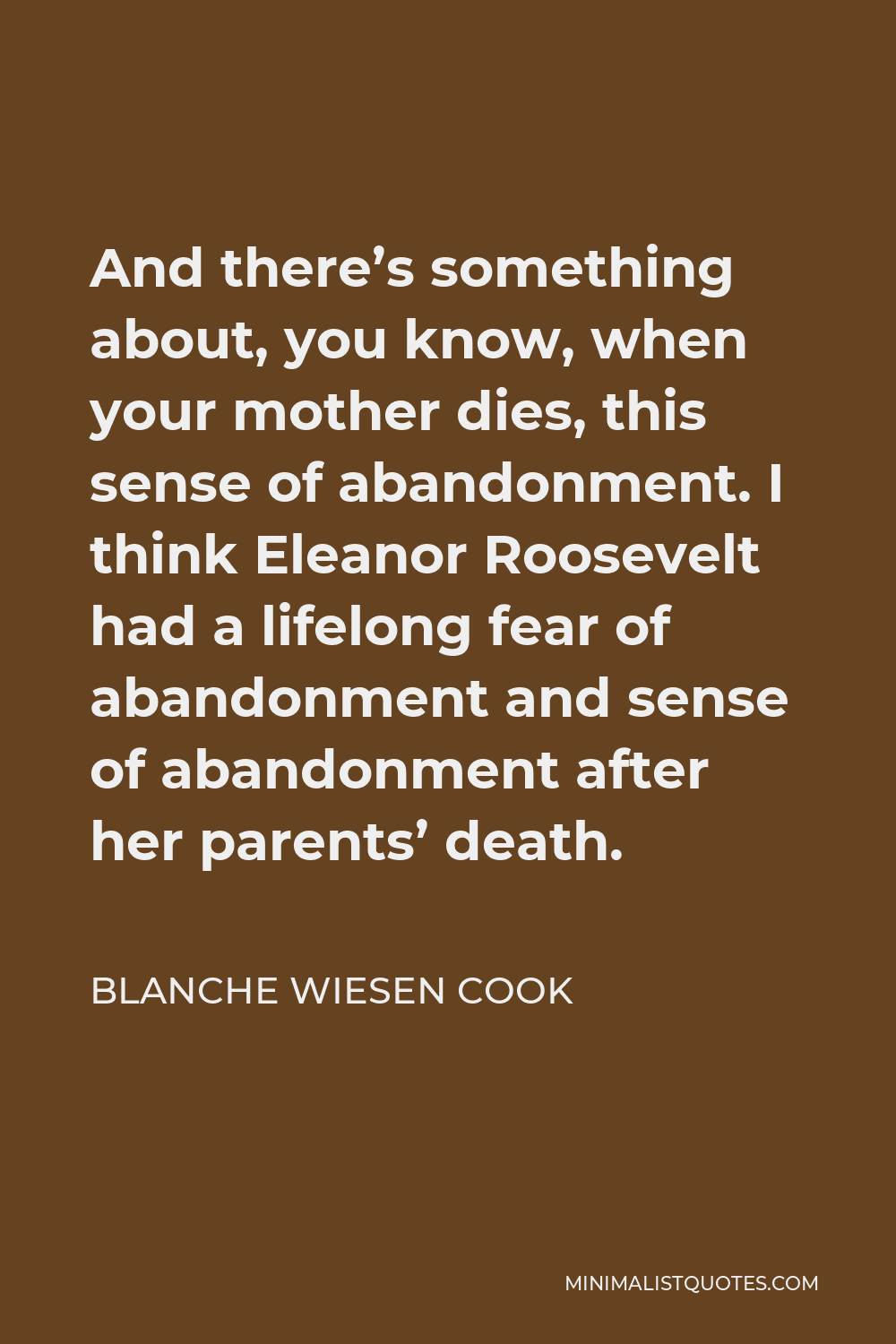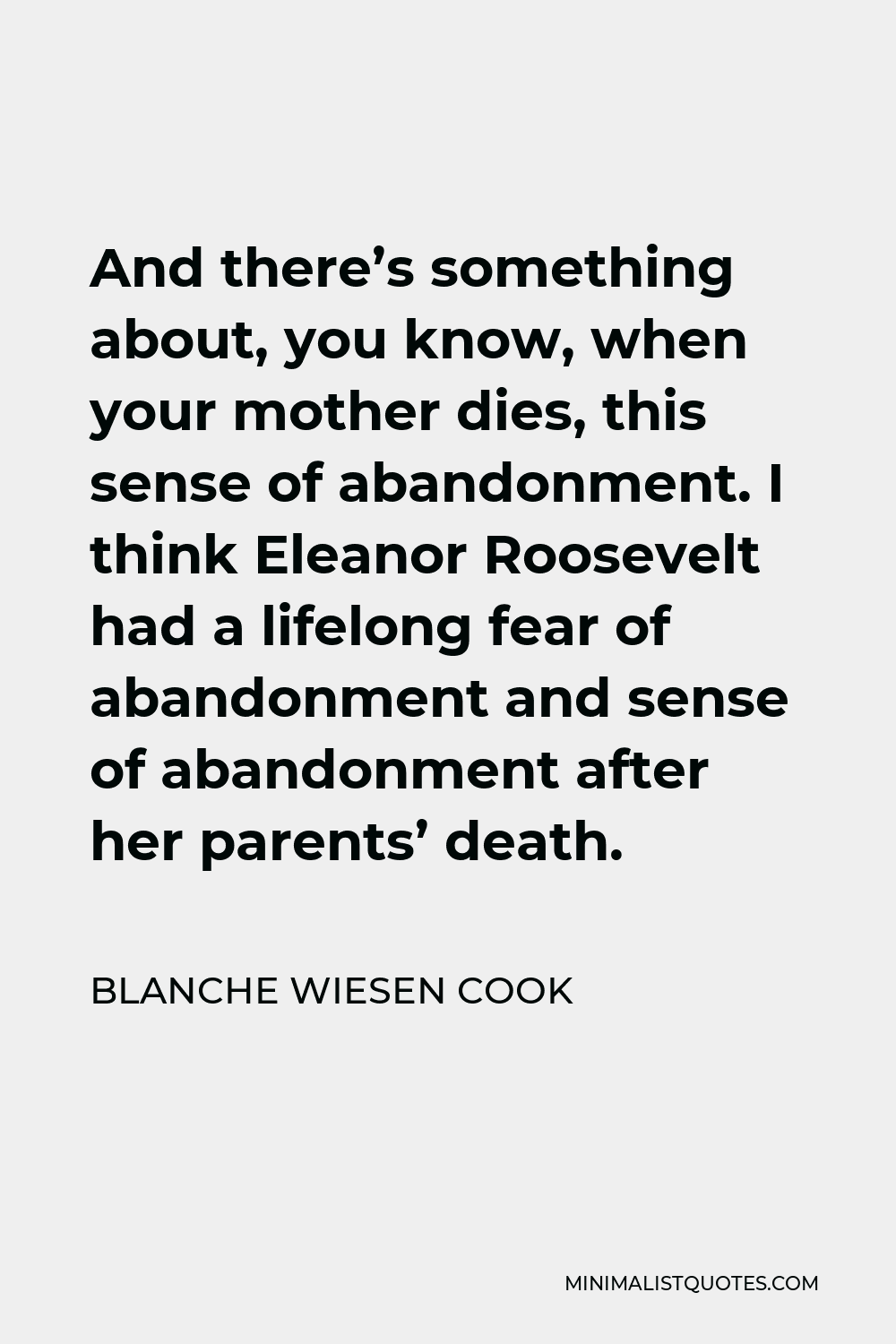Eleanor Roosevelt loved to write. She was a wonderful child writer. I mean, she wrote beautiful essays and stories as a child. And Marie Souvestre really appreciated Eleanor Roosevelt’s talents and encouraged her talents.
BLANCHE WIESEN COOKAnd there’s something about, you know, when your mother dies, this sense of abandonment. I think Eleanor Roosevelt had a lifelong fear of abandonment and sense of abandonment after her parents’ death.
More Blanche Wiesen Cook Quotes
-





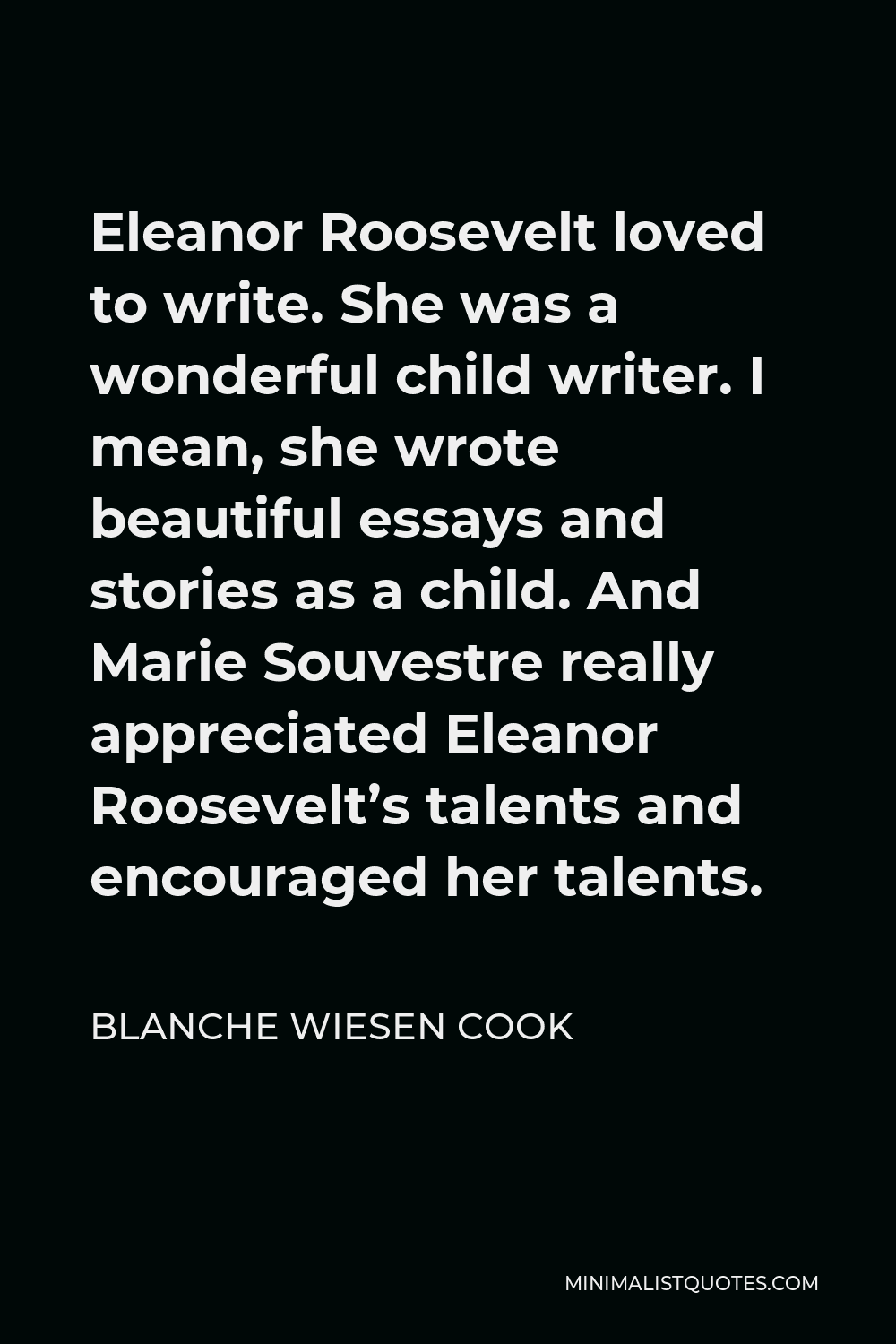
-





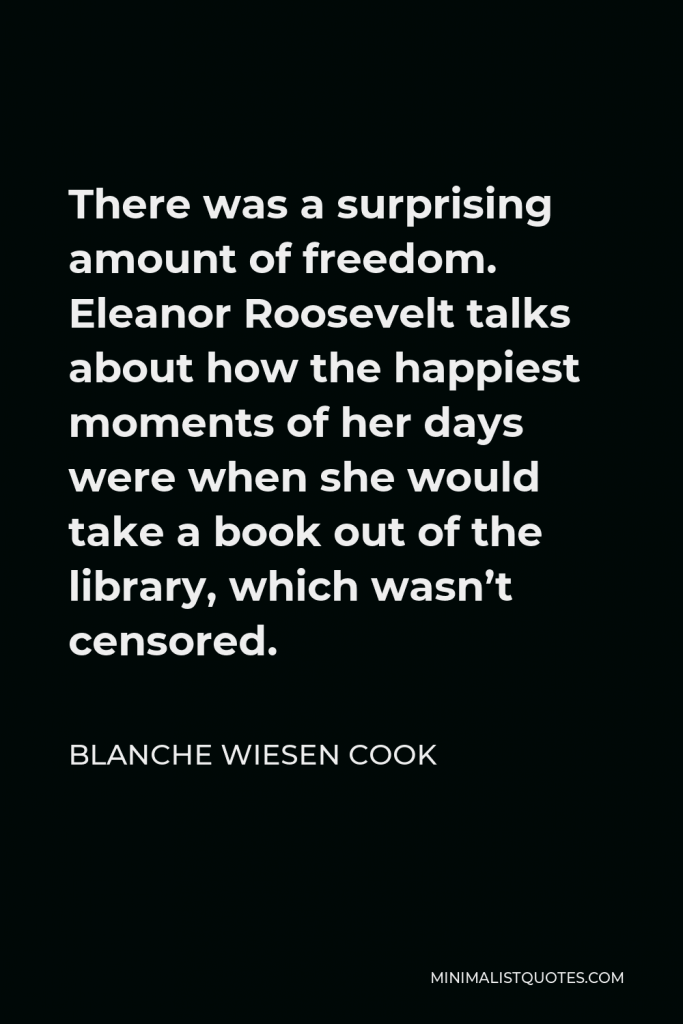

There was a surprising amount of freedom. Eleanor Roosevelt talks about how the happiest moments of her days were when she would take a book out of the library, which wasn’t censored.
BLANCHE WIESEN COOK -





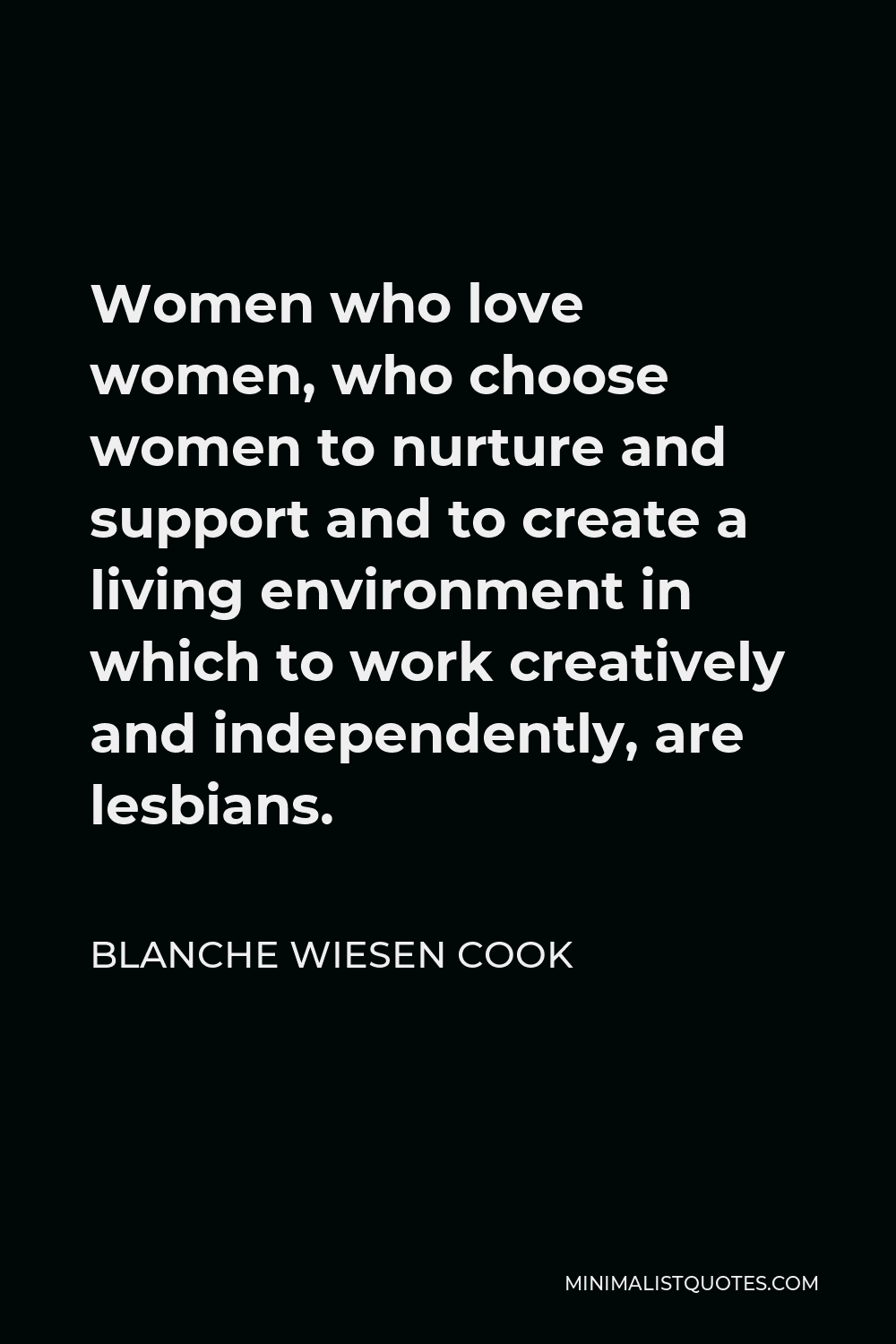
Women who love women, who choose women to nurture and support and to create a living environment in which to work creatively and independently, are lesbians.
BLANCHE WIESEN COOK -





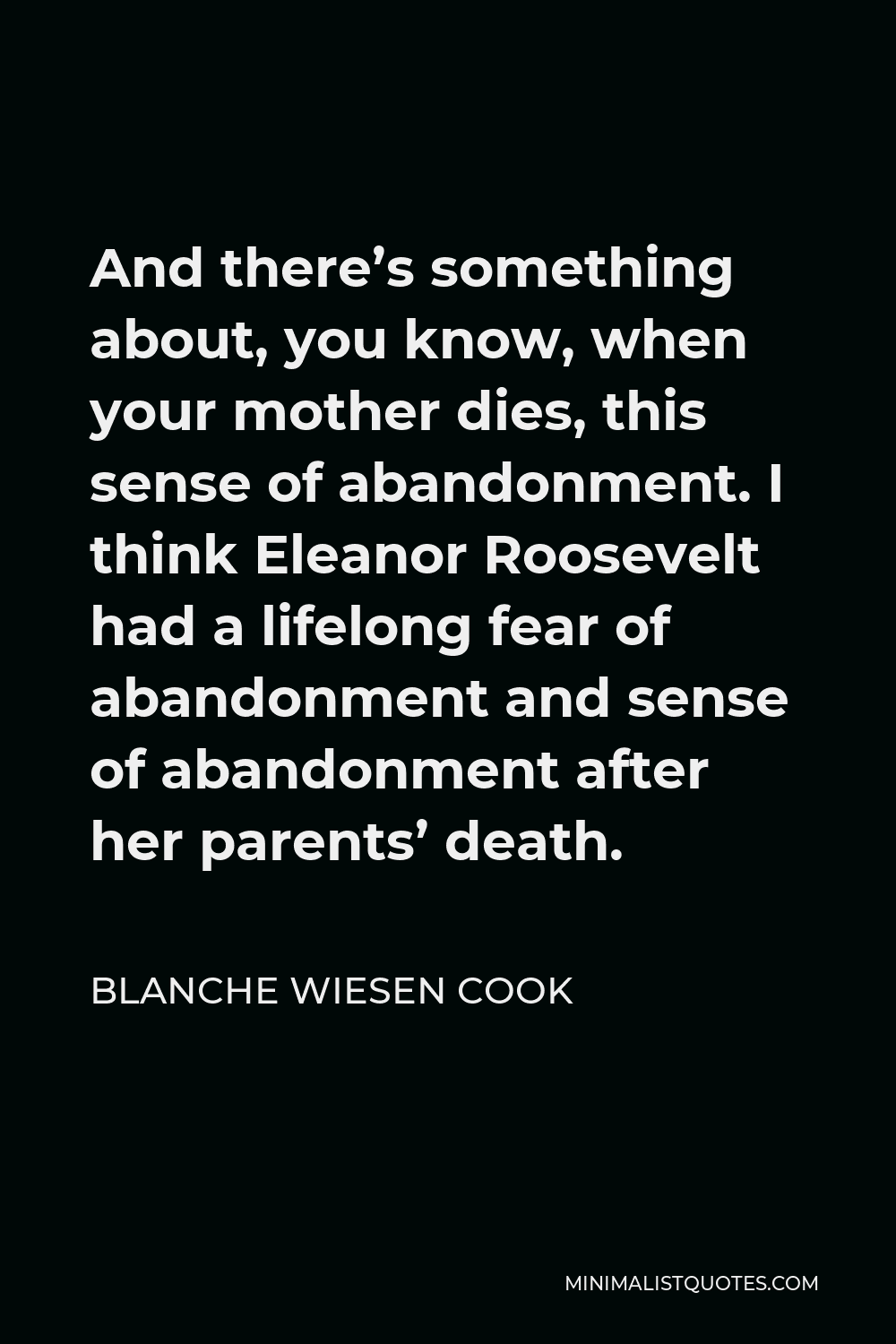
And there’s something about, you know, when your mother dies, this sense of abandonment. I think Eleanor Roosevelt had a lifelong fear of abandonment and sense of abandonment after her parents’ death.
BLANCHE WIESEN COOK -





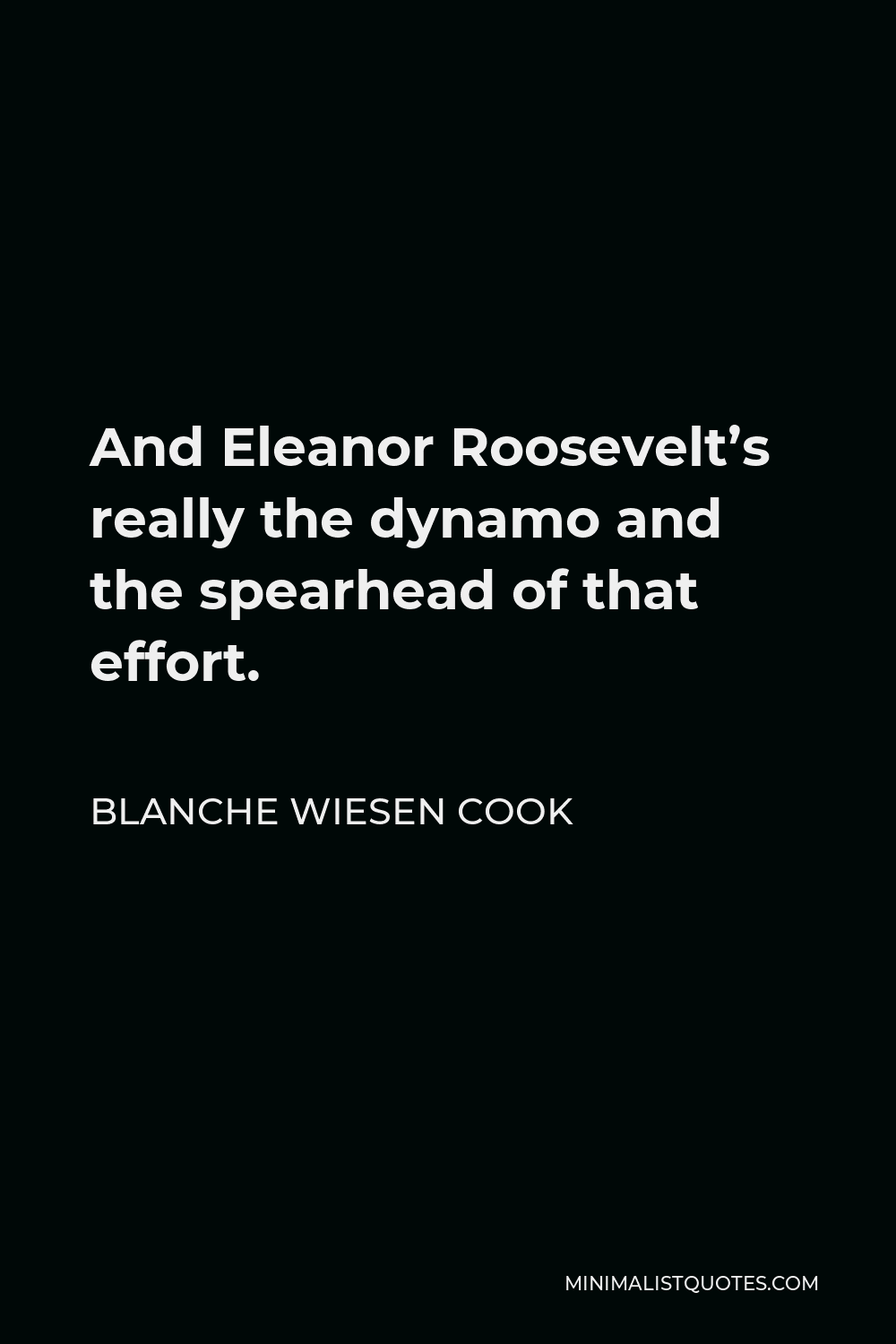
And Eleanor Roosevelt’s really the dynamo and the spearhead of that effort.
BLANCHE WIESEN COOK -





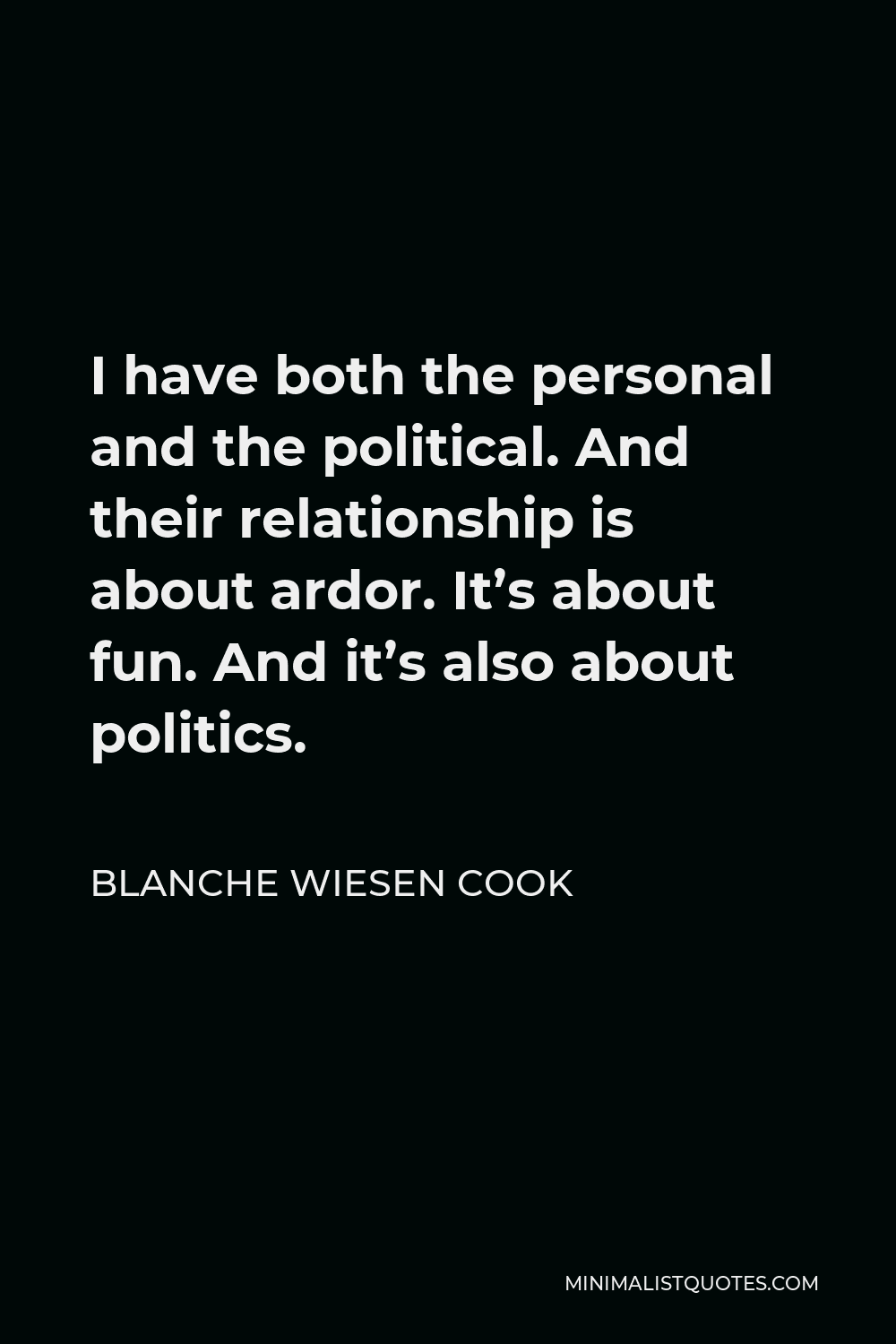
I have both the personal and the political. And their relationship is about ardor. It’s about fun. And it’s also about politics.
BLANCHE WIESEN COOK -





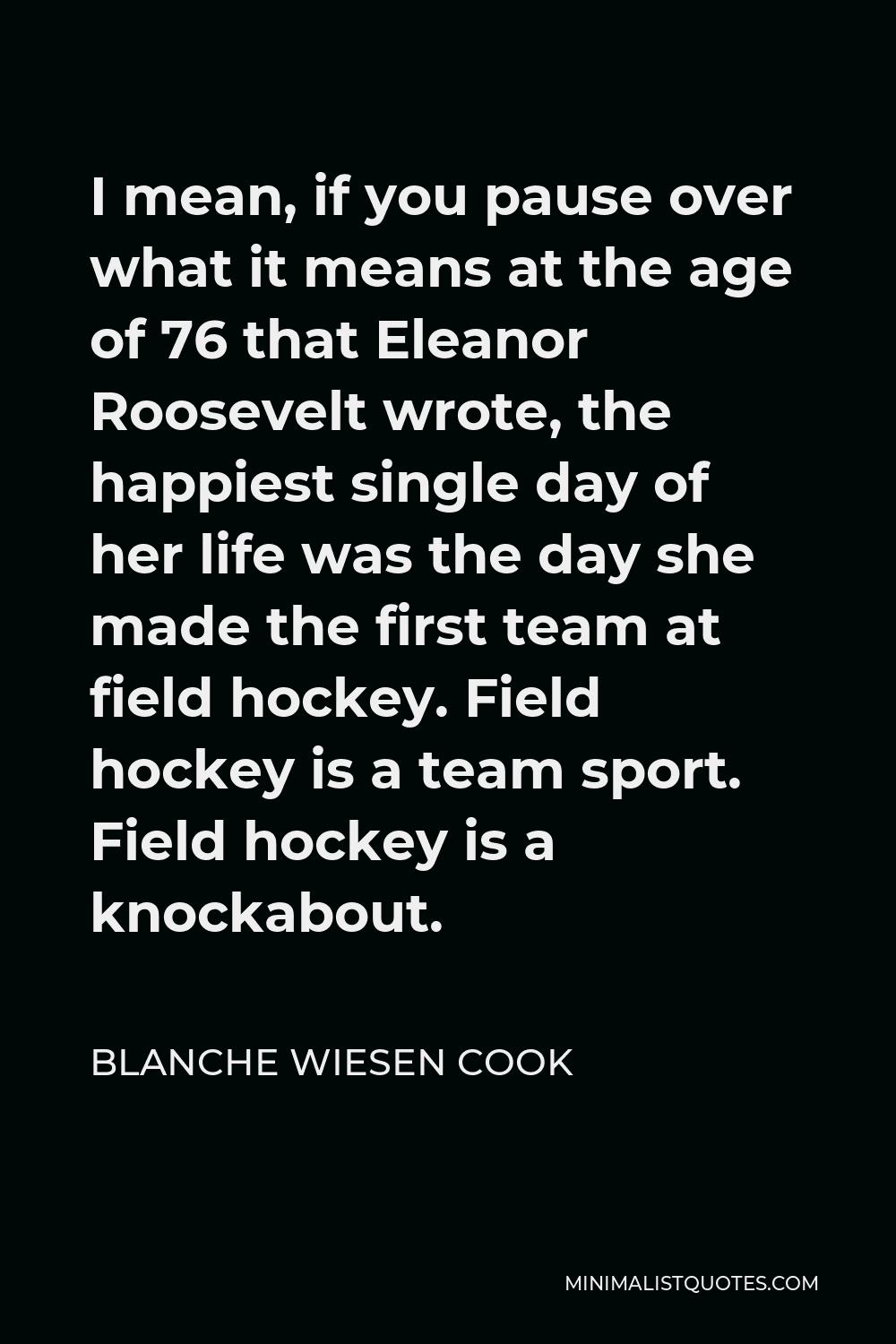
I mean, if you pause over what it means at the age of 76 that Eleanor Roosevelt wrote, the happiest single day of her life was the day she made the first team at field hockey. Field hockey is a team sport. Field hockey is a knockabout.
BLANCHE WIESEN COOK -





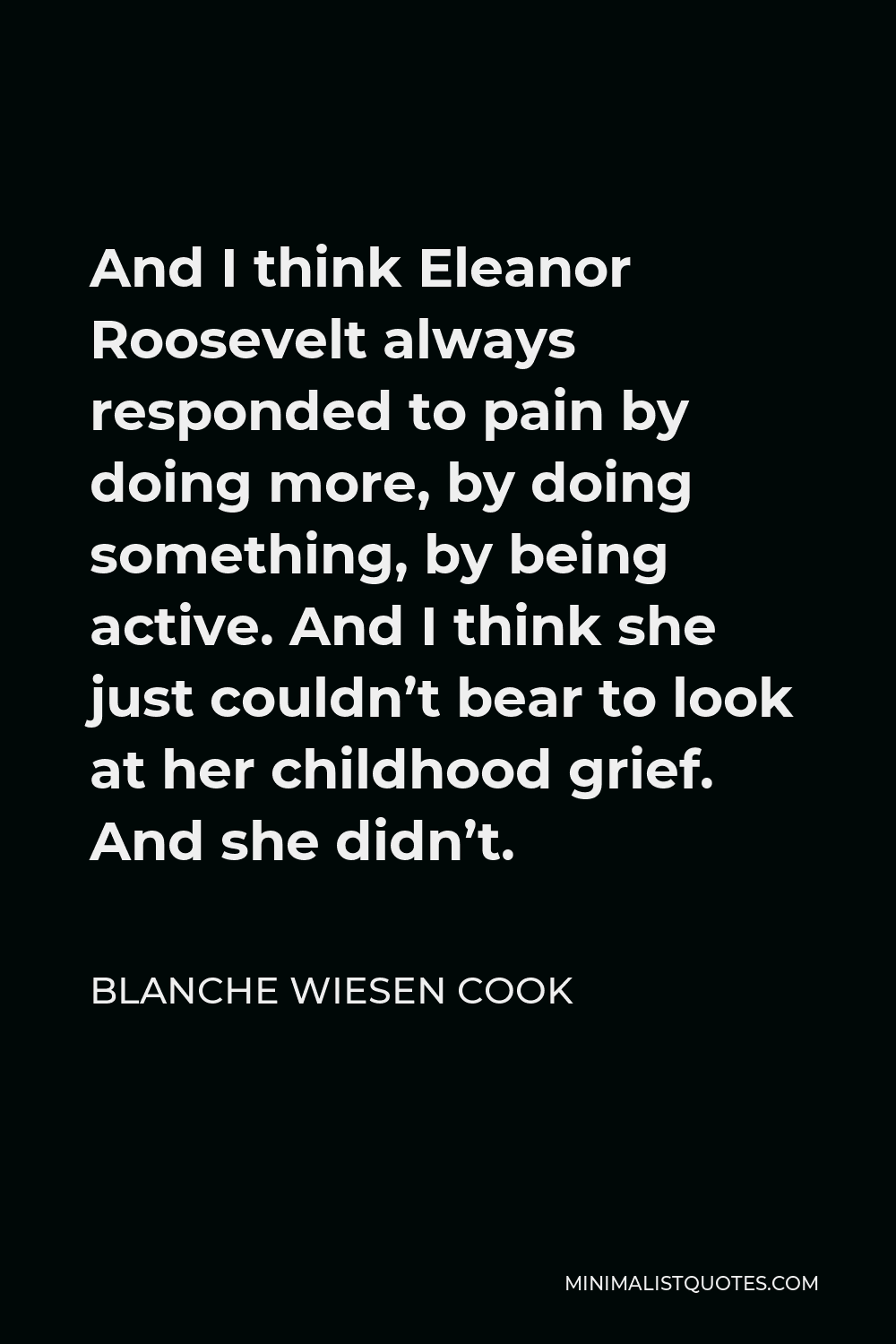
And I think Eleanor Roosevelt always responded to pain by doing more, by doing something, by being active. And I think she just couldn’t bear to look at her childhood grief. And she didn’t.
BLANCHE WIESEN COOK -





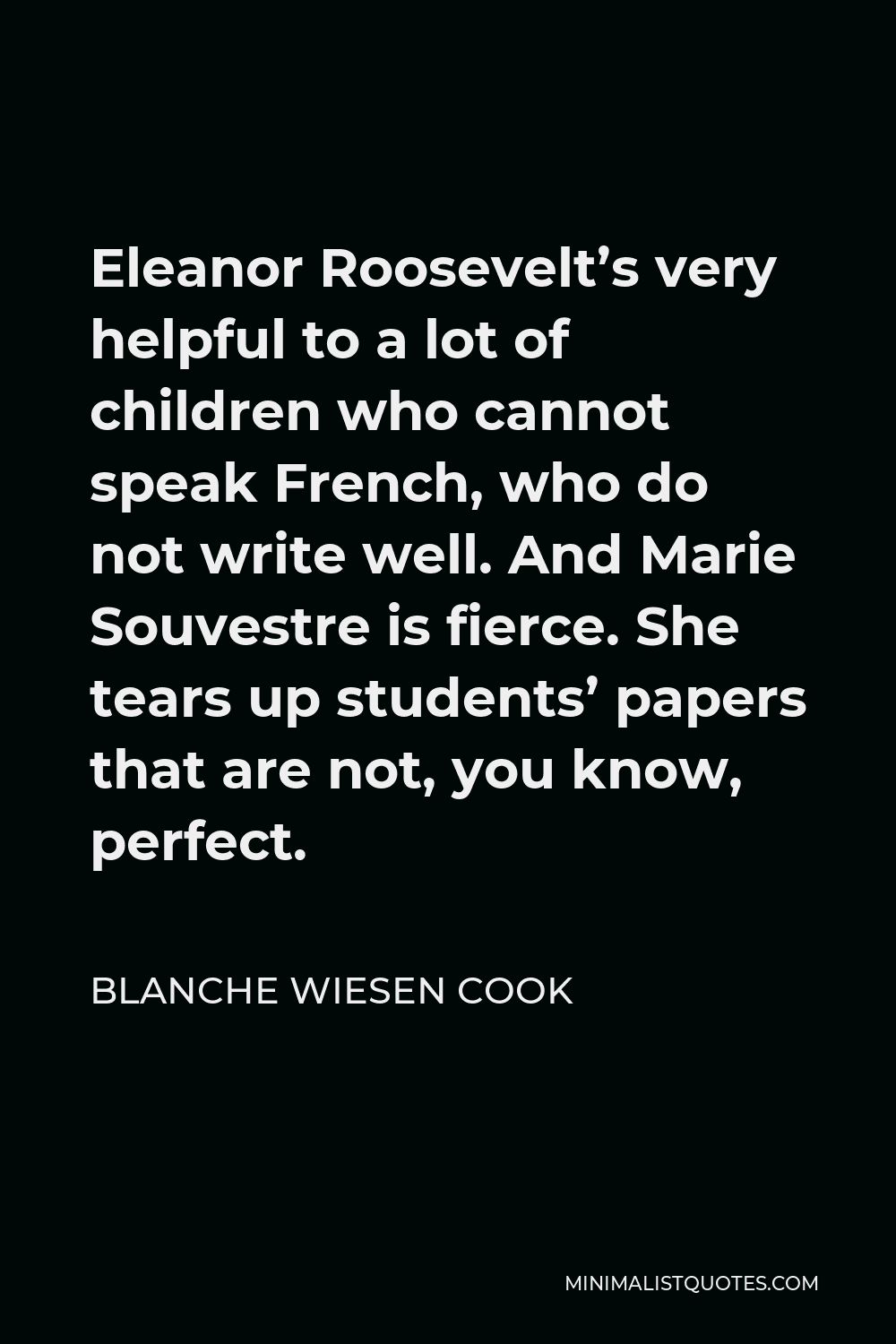
Eleanor Roosevelt’s very helpful to a lot of children who cannot speak French, who do not write well. And Marie Souvestre is fierce. She tears up students’ papers that are not, you know, perfect.
BLANCHE WIESEN COOK -





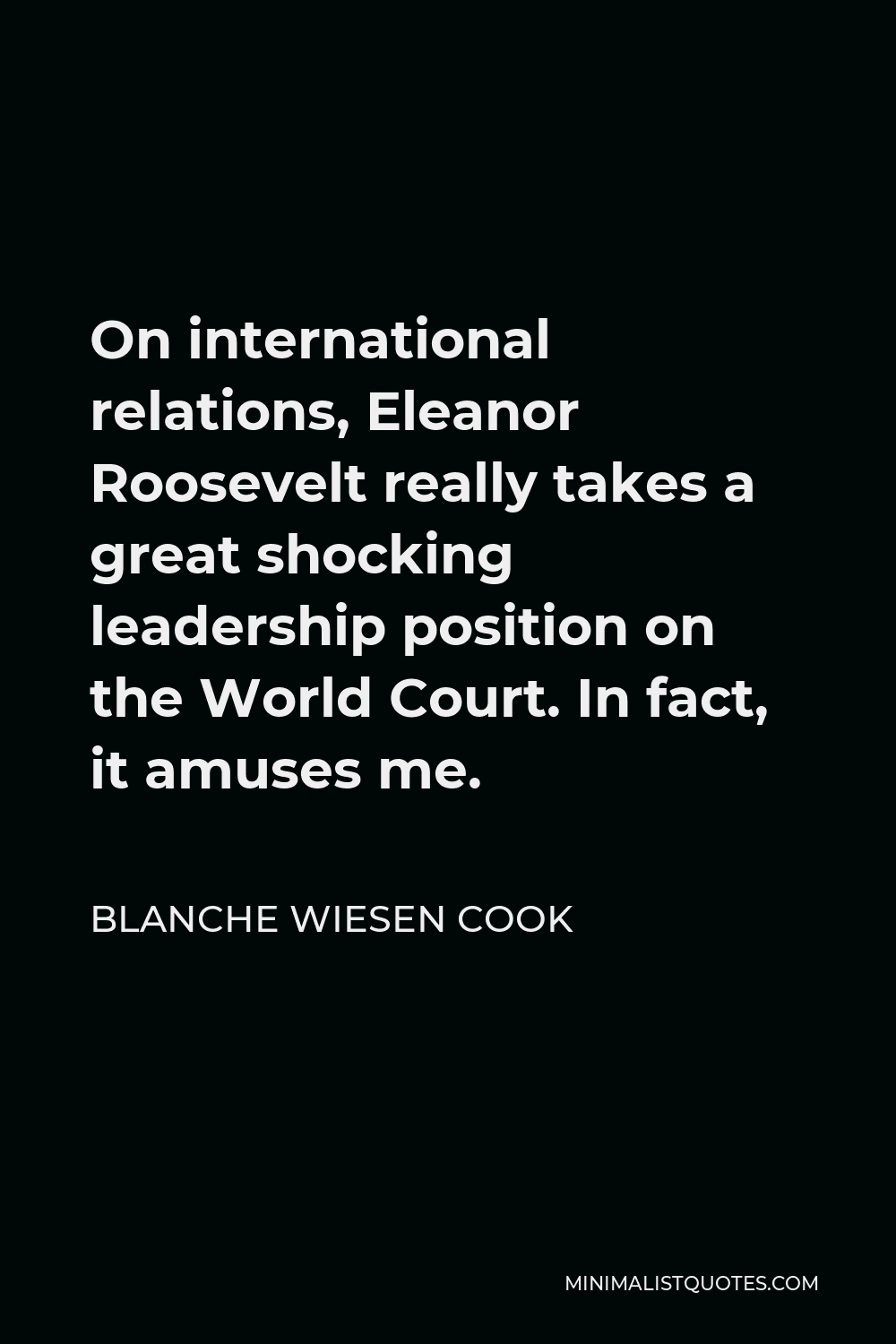
On international relations, Eleanor Roosevelt really takes a great shocking leadership position on the World Court. In fact, it amuses me.
BLANCHE WIESEN COOK -





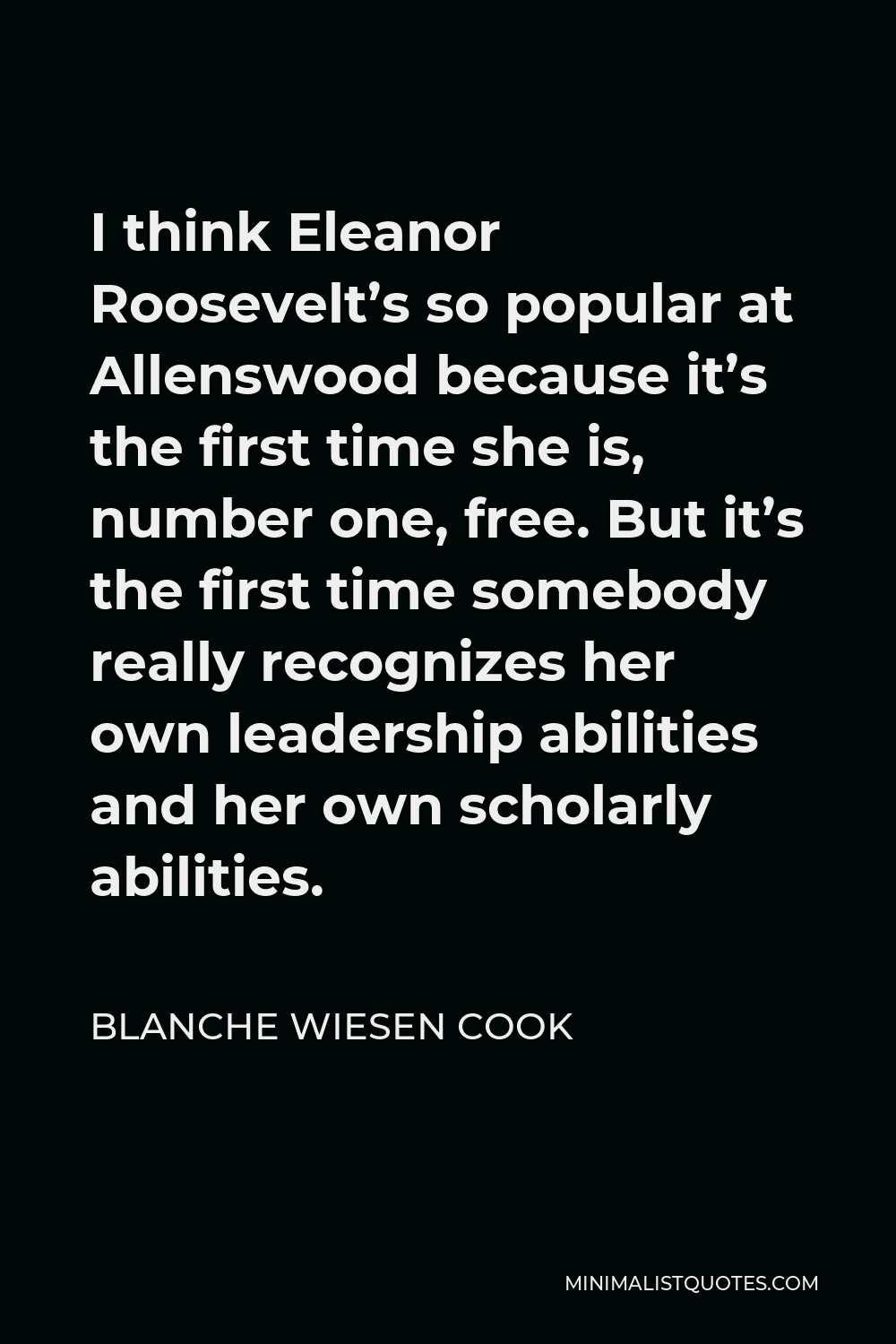
I think Eleanor Roosevelt’s so popular at Allenswood because it’s the first time she is, number one, free. But it’s the first time somebody really recognizes her own leadership abilities and her own scholarly abilities.
BLANCHE WIESEN COOK -





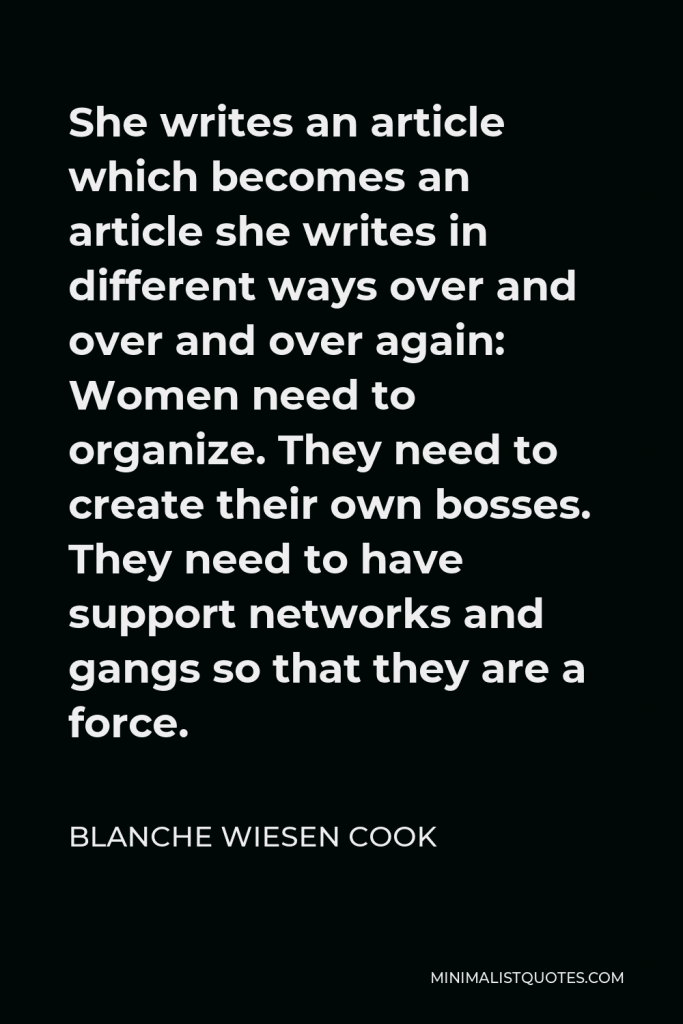

She writes an article which becomes an article she writes in different ways over and over and over again: Women need to organize. They need to create their own bosses. They need to have support networks and gangs so that they are a force.
BLANCHE WIESEN COOK -





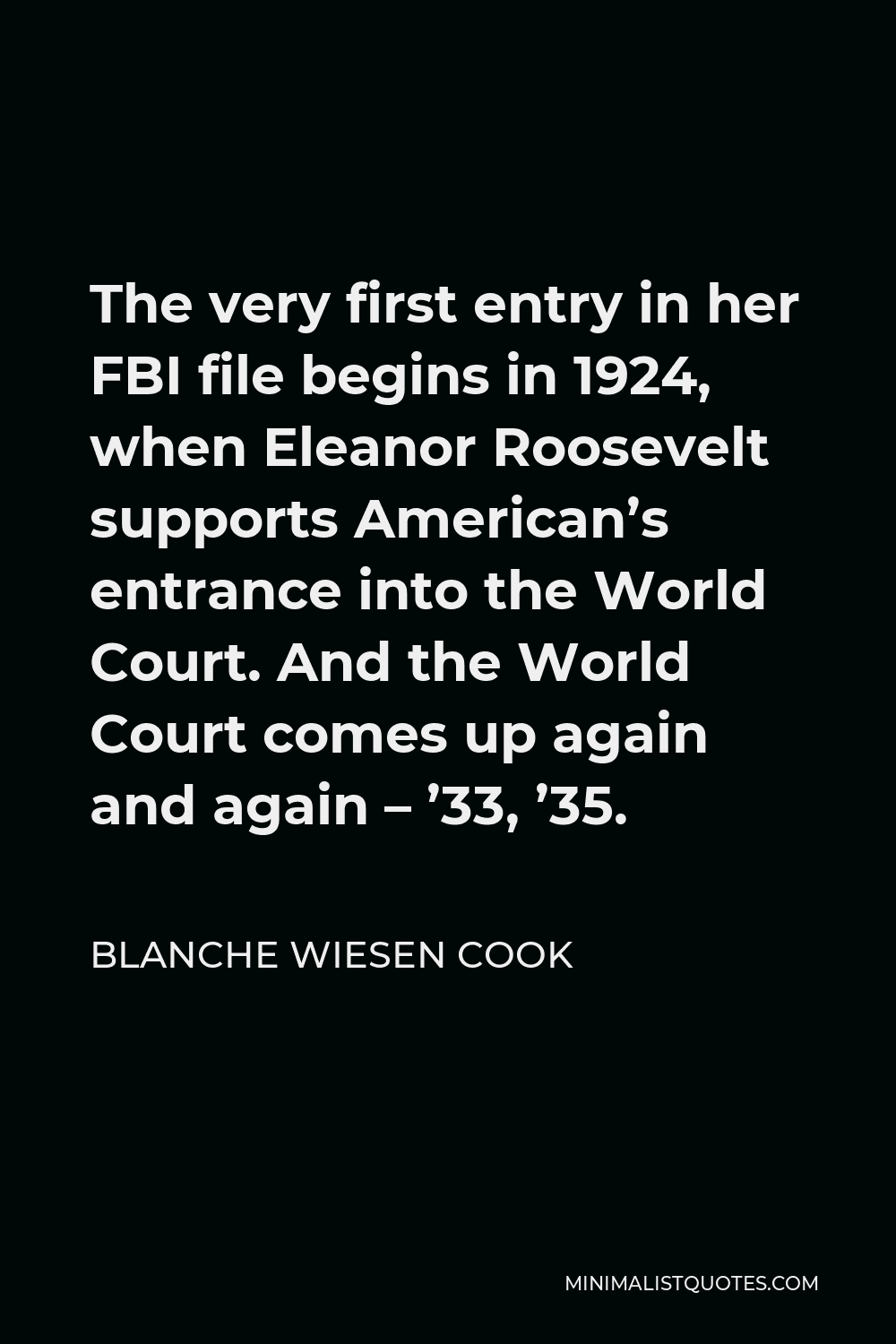
The very first entry in her FBI file begins in 1924, when Eleanor Roosevelt supports American’s entrance into the World Court. And the World Court comes up again and again – ’33, ’35.
BLANCHE WIESEN COOK -





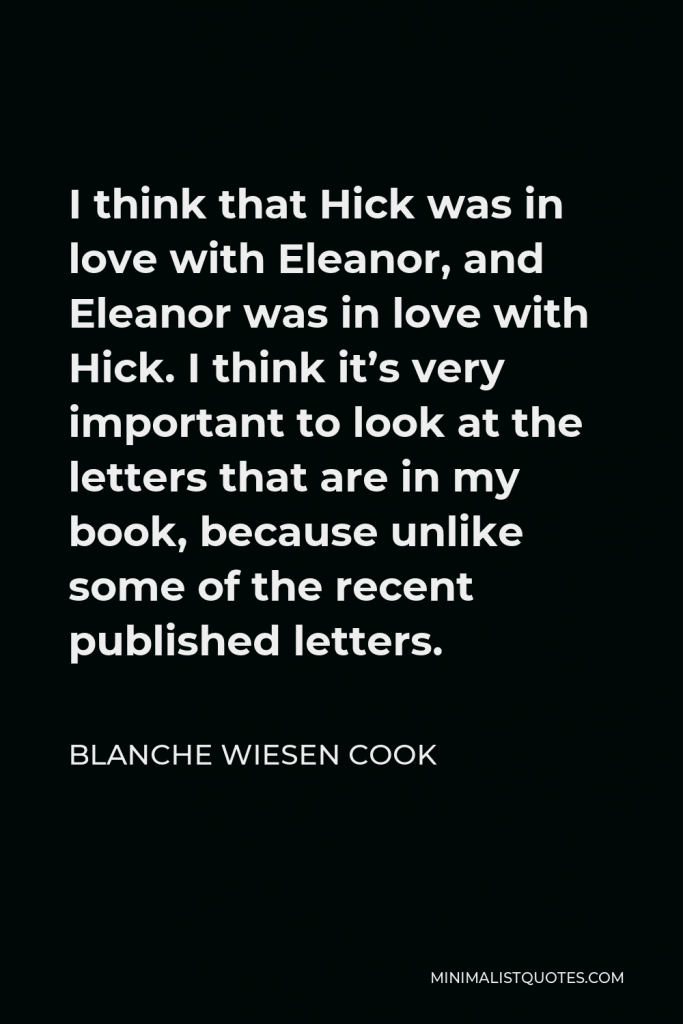

I think that Hick was in love with Eleanor, and Eleanor was in love with Hick. I think it’s very important to look at the letters that are in my book, because unlike some of the recent published letters.
BLANCHE WIESEN COOK -





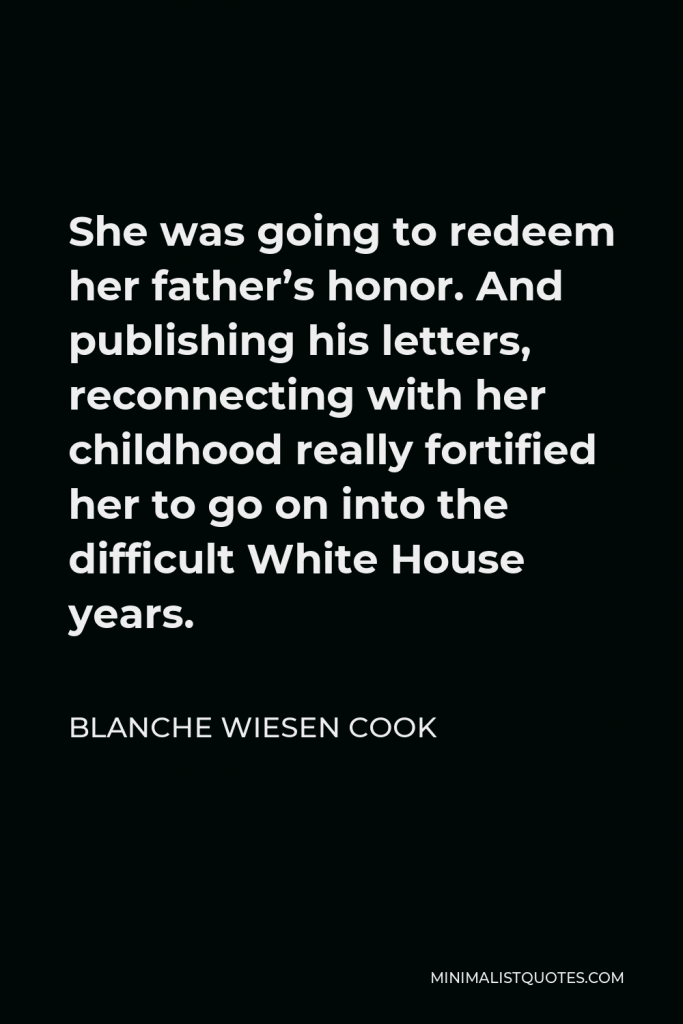

She was going to redeem her father’s honor. And publishing his letters, reconnecting with her childhood really fortified her to go on into the difficult White House years.
BLANCHE WIESEN COOK -





![Blanche Wiesen Cook Quote - So she [Eleanor Roosevelt] is an amazing First Lady. What other First Lady in U.S. history has ever written a book to criticize her husband’s policies?](https://minimalistquotes.com/wp-content/uploads/2023/03/so-she-eleanor-roosevelt-is-an-amazing-first-lady--683x1024.jpg)

So she [Eleanor Roosevelt] is an amazing First Lady. What other First Lady in U.S. history has ever written a book to criticize her husband’s policies?
BLANCHE WIESEN COOK
